The Last Battle of Spartacus
The Senate of Rome understood the dangers of the situation. All the forces of the Republic that were available were sent to fight the rebels. The commander of the new army was Mark Licinius Crassus.
His purpose was largely due to the fact that Gnea Pompey, Lucius Licinius Lucullus and his brother Marc Licinius Lucull, who were considered the best commanders of Rome, fought outside the Apennines Peninsula. Moreover, there was no excess among the remaining commanders to go to war with the gladiators and slaves: the risk of suffering another defeat was very great, but the victory over such an “unworthy” rival did not promise great glory.
Appian reports:
Crassus already had combat experience: during the II Civil War, he fought against Maria in the army of Sulla. Together with Pompey, he then won a victory over Spolecius, and later, commanding the right wing, overturned the left flank of the enemy in the battle at the Collin Gate. Now Crassus got the post of praetor and 6 legions, joined by consular legions of Gellius and Lentula. Thus, in submission he had from 40 to 50 thousands of soldiers, and with auxiliary units - all 60 thousands.
The first loud deed of Crassus in this war was the ancient procedure of decimation — the execution by lot of every tenth warrior of the retreating units: thus, he clearly showed everyone that he did not intend to spare the "cowards". According to Appian, 4000 people were executed, and “now Crassus turned out to be more terrible for his soldiers than the enemies who defeated them.” According to the same author, these executions were carried out as follows: one of the junior commanders touched a warrior who was drawn, and a dozen other nine soldiers beat him with sticks or stones until he died. The survivors did not have the right to spend the night in the camp, instead of wheat bread they were given a "disgraceful" barley - which was fed by gladiators.
But soon after the appointment of Crassus, the situation on the fronts of the Republic changed. During the feast in Spain, the talented Marian commander Quintus Sertorius was treacherously killed, after which Pompey easily defeated the rebels who remained without an acknowledged leader. In Thrace, he won and was preparing for the return home Mark Lucius Lucullus. And therefore, in the fall of that year, the Roman Senate decided to appoint a second commander for the war against rebellious slaves. The choice fell on Pompey. Crassus, who was always jealous of the glory of Pompey and therefore in a hurry to end the rebels on his own, was extremely displeased with this appointment. He besieged the army of Spartacus in Regia (according to another version - north of the Furies). However, according to some historians, Spartak was just waiting in a camp prepared by him, when winter storms would pass and pirate would come to his aid flotilla.
Many researchers now believe that with the help of pirates, Spartak planned to organize landings in the rear of Crassus (to surround the Romans, and not to evacuate his army at all, as the author of the wonderful novel Rafaello Giovagnoli believed). The fact is that the rebel slaves did not, in general, have any place to go. Close Sicily was just a large cage with limited human and material resources. The Romans would not leave impudent slaves alone and would not give them this island. By the way, Plutarch understood this, arguing that Spartak planned to transfer the entire 2000 man to Sicily - in order to raise a revolt there, this detachment was quite enough. It was unlikely, perhaps, that the rebels had any strength to establish their own state in Tsizalpinskaya Gaul. The path to “Shaggy” Gaul lay across the Alps, and there would not be very happy about the Latinized Gauls of Spartak (especially Thracians and people of other nationalities). In addition, the powerful Gallic tribe of the Edues at this time acted as an ally of the Romans, sending their warriors to them as mercenaries. The Gauls and Germans of the army of Spartacus, who initially did not fully trust their companions, and, eventually, separated from them, had nothing to do in Thrace. And it was too late to go there - Mark Licinius Lukull already finished off the last rebels. No one was waiting for the rebels in the tamed Pompey of Spain. And there was absolutely no place to go to the natives of Italy - both free people who joined Spartacus and slaves. However, information about the appointment of Pompey forced Spartacus to abandon the original plans and begin hostilities. Part of his army broke through the defensive line of Crassus and defiantly moved to Rome. The losses of the rebels were great (up to 12 thousands of people), but Crassus "was afraid that Spartak would decide to move swiftly to Rome" (Plutarch). Having rushed after parts of Spartacus, Crassus wrote to the Senate a letter demanding that he urgently call Lucullus from Thrace and speed up the return of Pompey from Spain. The remaining "unguarded" part of the troops of the rebels, unrestrained by anyone, went to the operating room. But at the same time, the army of Spartak split: a part of it remained in Bruttiya, a part was in Sylar, and Guan Gannik’s squad was in Lucania at that time, who probably had been acting independently for a long time: some data suggest that the leaders of the rebel gladiators, Spartak and Crix, from the very beginning formed two different armies. Orosius writes:
Later, he also reports that Mark Krass defeated Spartak's "auxiliary troops," and he says so about the Kriks army — a detachment of Gauls and Germans. And the auxiliary troops in Rome were called independent units, which were temporarily attached to the army performing the main task. And it is very likely that Spartacus and Kriks had completely different views on the war with Rome, different plans, and their alliance was temporary. When the contradictions between the armies of the rebels reached their maximum, Cricks began to implement his, unknown to us, plan. Spartak led his army to the north, to Tsizalpinskaya Gaul, while Crix finally separated from him and headed south. On the way, his detachment underwent a flanking strike in the most adverse conditions - on a small peninsula surrounded by water on three sides. Cricks was killed in a battle at Mount Gargan, but the Romans could not destroy his army, which had escaped from the trap and was now retreating to the south, leading the army of consul Gellius behind them. The consul pursued them for some time, but then turned north - towards Spartak, who had already defeated the army of Lentul (another consul):
(Plutarch.)
Then it was the turn of the army of Gellius, who was in a hurry to meet him:
(Titus Livius.)
After defeating the consuls, Spartak honored the memory of Kriks and the Gauls who died with him, arranging gladiatorial battles in which 300 noble Roman prisoners of war were forced to participate. At the same time, Spartak allegedly said then:
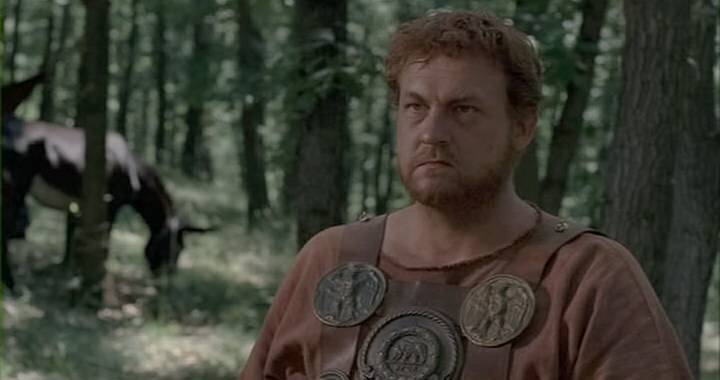
Kriksa was replaced by the Kannikas Gaul, who was often called by the Roman name Guy Gannic, which means that he had the rights of a Roman citizen: not one of the Roman historians reproached him for appropriating this name and no one doubted the right of Gannik to wear it. Most likely, Kriks, Gai Gannik and his deputy Kast were Gauls from the Insubra tribe, who had previously lived in the province of Tsizalpinskaya (Predalpiyskaya) Gallia, whose capital was Mediolan (Milan). This province was also called Middle Gaul and Gaul Togata (since its inhabitants wore togas like the Romans).
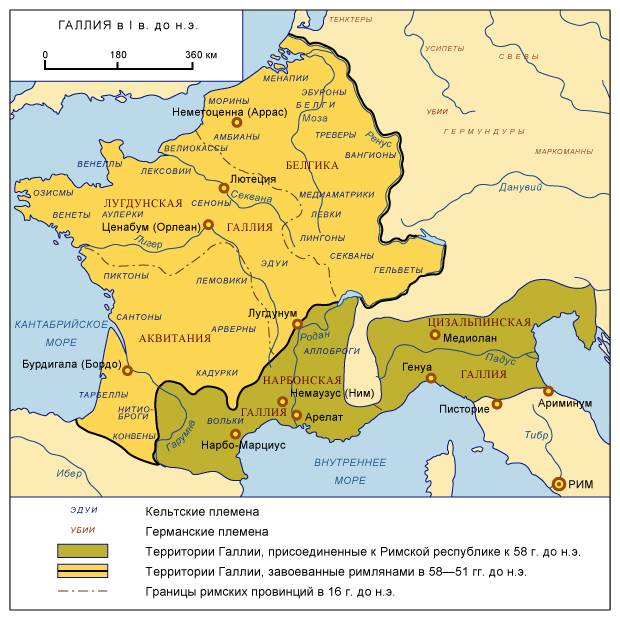
But some researchers, ignoring the numerous indications that Crix was a gall, consider him a Hellenized Italic from the Samnite tribal union.
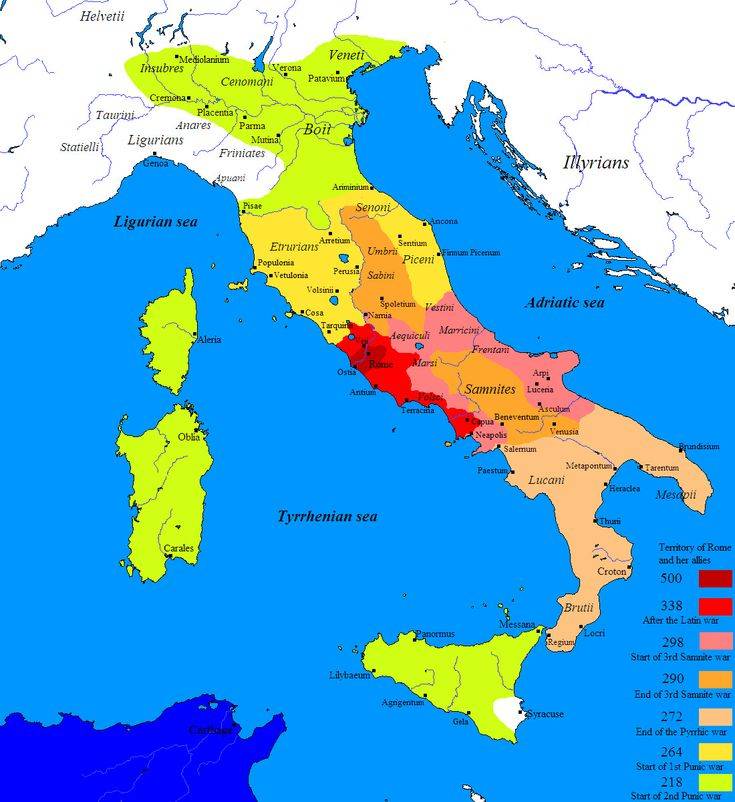
In 89 BC all personally free inhabitants of Tsizalpinskaya Gaul received Roman citizenship, the Samnites received citizenship in the same year. Therefore, it is likely that Crixes, Gannic, and Castes (regardless of their nationality) were Roman citizens. And all three fall under the definition of Plutarch and Sallust:
(Plutarch.)
(Sallust.)
So, part of the soldiers of the army of Spartacus, in fact, could previously have been free people, opponents of Sulla, after the victory of which, were unfairly sold into slavery. This may explain their unwillingness to be close to "real" slaves and the desire to act separately. Even the defeat and death of Kriks did not make them unite with the army of Spartacus.
Let's go back to 71 BC and we will see a detachment of Gannik and Kasta, standing apart from the army of Spartak - at Lake Lucan. It was this detachment of the rebels that was closest to the main forces of Crassus, who immediately tried to strike at him with superior forces. He was prevented from doing this by the time Spartak approached:
(Plutarch.)
But in this case Crassus showed himself to be a skilled commander. Frontin reports:
So, Crassus managed to divert Spartak’s attention by imitating an offensive, while the main forces of the Romans smashed Gannik’s army:
Despite the inequality of forces, the battle was extremely fierce - according to Plutarch, “the 12 300 slaves fell. Of these, only two were wounded in the back, all others fell in the ranks, fighting against the Romans. "
But the main surprise was waiting for Crassus in the Gannik camp. Frontin reports:
The list of trophies - just fantastic. Because in the famous battle in the Teutoburg Forest (9 AD), the Romans lost three Eagles, in the wars with Parthia - two. And these losses in the battles with "full-fledged" enemies were considered a disaster. And then it turns out that only a squad of Kriks-Gannik-Caste 5 defeated the Roman legions.
Learning of the defeat of Gannik and Casta, Spartak retreated to the Petelia Mountains. On the way, he defeated Quintus and Quaestor Skrofy, who were pursuing his legacy:
(Plutarch.)
The same author reports:
It is difficult to say how it was in reality, but Spartak moved precisely to Lucania. A number of historians suggest that the goal of Spartacus was still not a campaign against Rome: he probably intended to turn to Brundysius. This city was a strategically important port - all-weather, protected from storms. In Brundizii there were large reserves of supplies, and also - it was the site of the most likely landing of the army of Lucullus. In addition, in this way Spartacus took Crassus from Pompey, whose troops were already in Tsizalpinskaya Gaul, and got the opportunity to smash the enemy commanders in turn. However, the troops of the governor of Macedonia, Mark Lukulla (brother Lucius Lucull), had already landed in Brundizii and the leader of the rebels was in the position of Napoleon at Waterloo.
This was his last chance - to smash the Romans piece by piece, before their armies united.
Orosius reports that the last battle of Spartacus took place in Lucania - at the head of the Sylar River. Eutropius claims that Spartak gave this battle near Brundisius - in Apulia. Most researchers prefer this version. One way or another, in January, 71 BC around 4 hours of the day, Spartacus's cavalry stumbled upon the Crassus army, which was engaged in the arrangement of the camp (half of the army was building the camp, half of them were in military guard) and attacked it without permission. It was the only battle of Spartacus, which did not develop according to his plan, and not at all the battle that the great commander would like to give.
(Plutarch.)
Plutarch argues that in his last battle, Spartak fought on foot:
However, if the commander of the rebels and killed the horse before his last battle, then, probably, for ritual purposes - sacrificing him. Knowing that Spartak led the blow against Crassus’s headquarters, it’s logical to assume that his squad was equestrian. Appian says: "He (Spartak) already had enough riders." He also writes that Spartak was injured by a spear "doration", which was used by cavalrymen. Probably Spartak himself at the time of the wound fought on horseback. This version is confirmed by a fragment of a mural found in Pompeii, in which a rider, named Felix, spears a wound in the thigh of another, over whose head there is an inscription "Spartacus".
On the second part of this fresco, a Roman warrior from behind strikes an enemy in an unnatural posture - perhaps this is an image of Spartacus’s last moments.
So, realizing that in case of defeat, his army was doomed, Spartak decided to take a chance and hit the center, where the enemy commander stood:
(Plutarch.)
(Appian.)
(Flor.)
(Sallust.)
(Plutarch.)
The body of Spartacus was not found.
Perhaps personal participation in the attack of the enemy was a mistake of Spartacus. It was the panic that swept the troops of the rebels after the news of the death of the leader, and led to their complete defeat. There was no one to gather the retreating troops, no one to organize a proper retreat. However, the rebels did not intend to surrender: they were well aware that death would await them anyway — no one would buy slaves who had fought for two years against Rome. Therefore, according to Appian, after the defeat:
Flor writes about their doom:
In the "hunt" for the fled slaves, Pompey managed to take part:
(Plutarch.)
However, for a long time the remains of the army of Spartacus were disturbed by the Romans. Only after 20 years, according to Suetonius, their last detachment was defeated by Bruttius propretor Guy Octavius - the father of the future emperor Octavian Augustus.

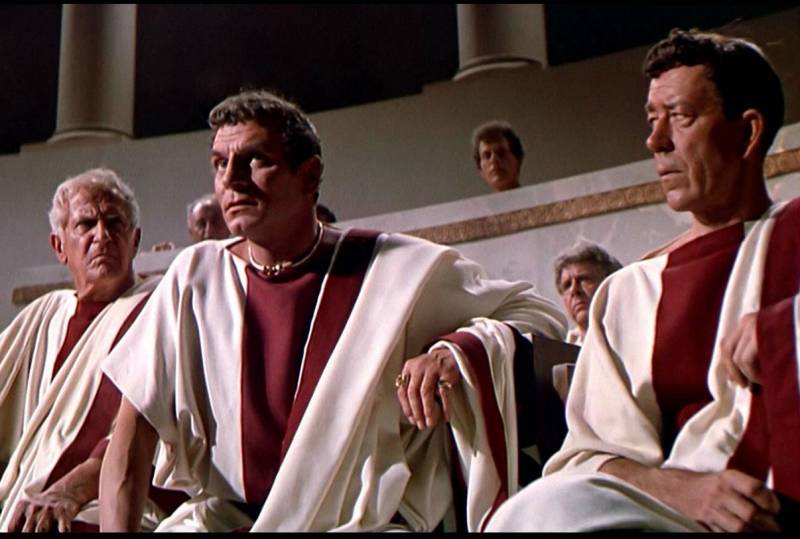
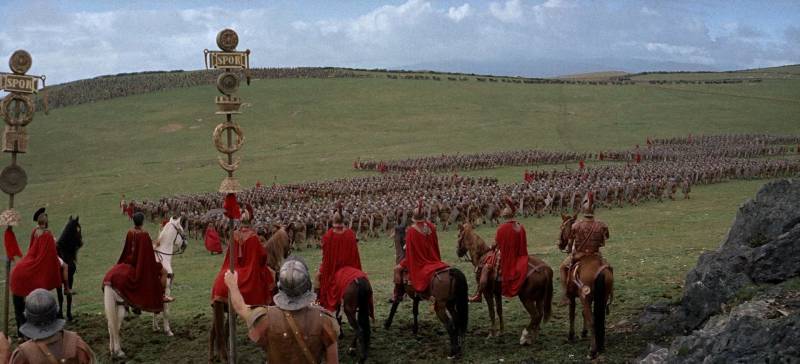
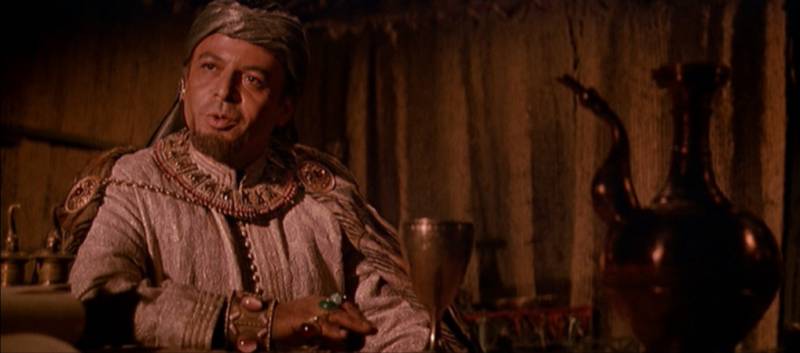
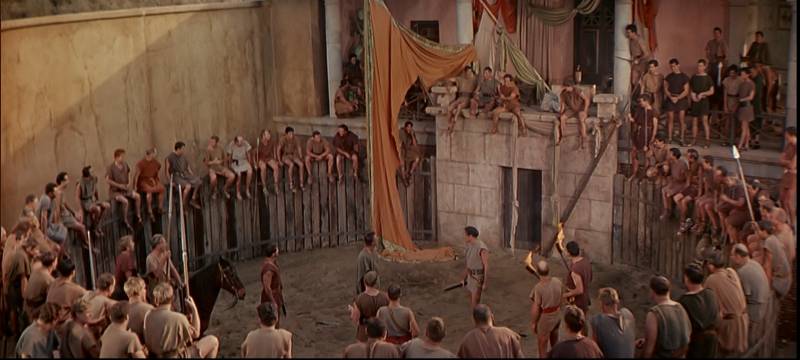
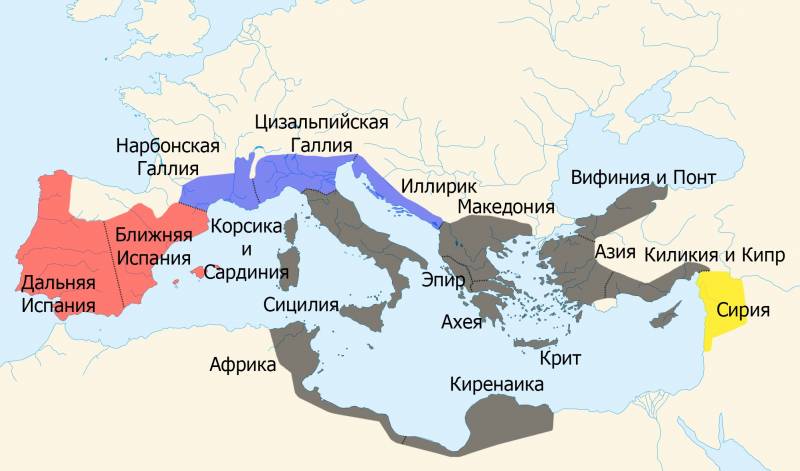
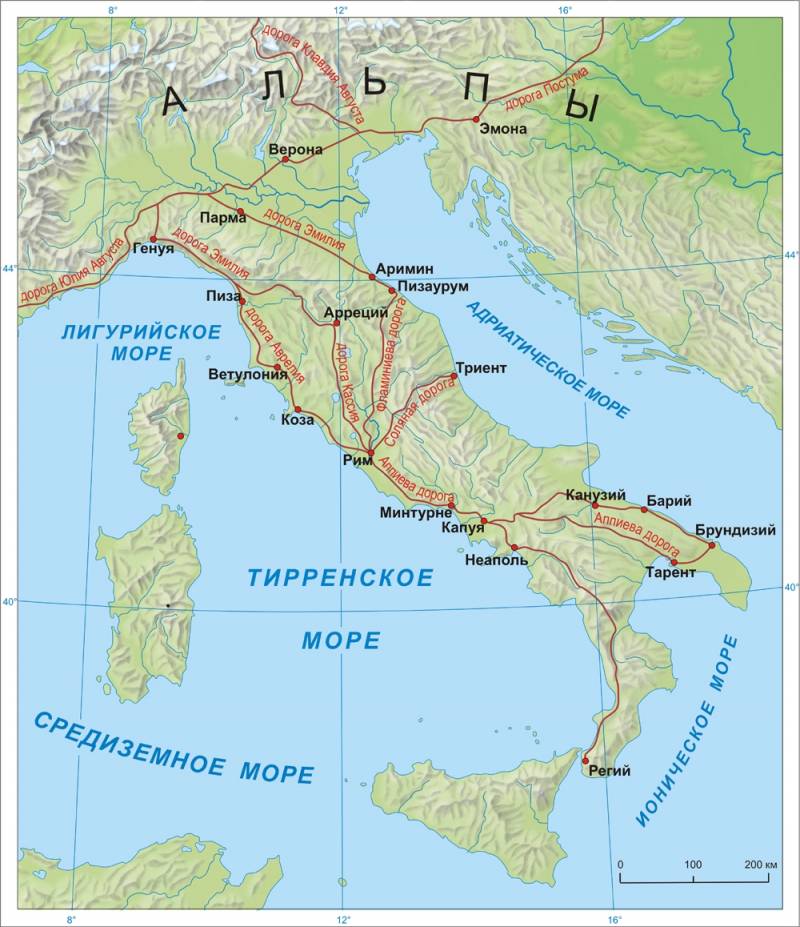

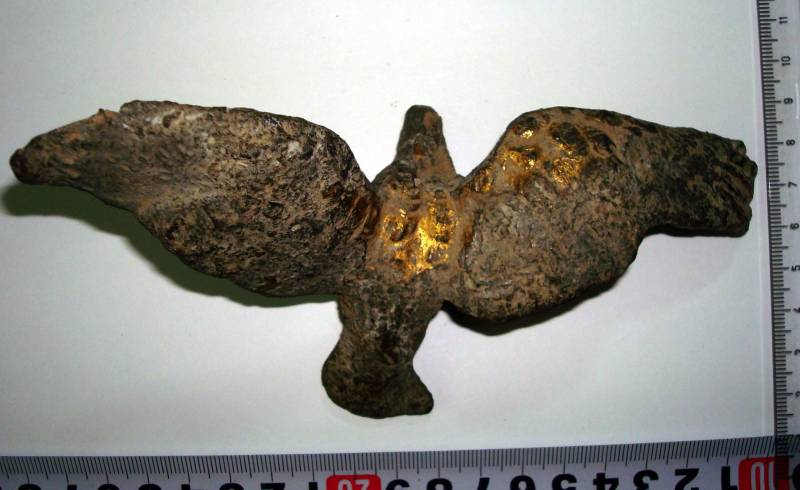
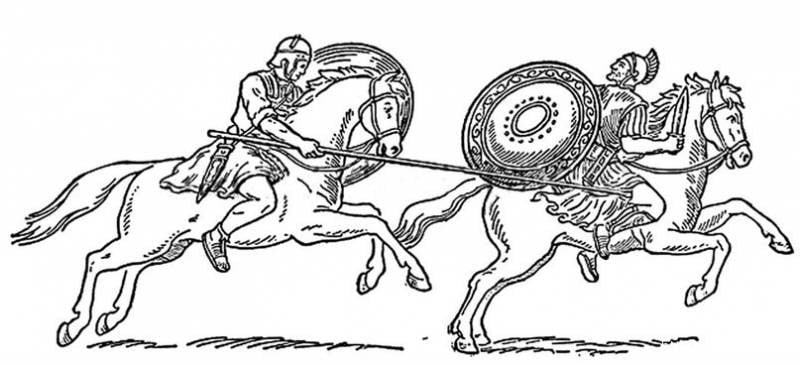

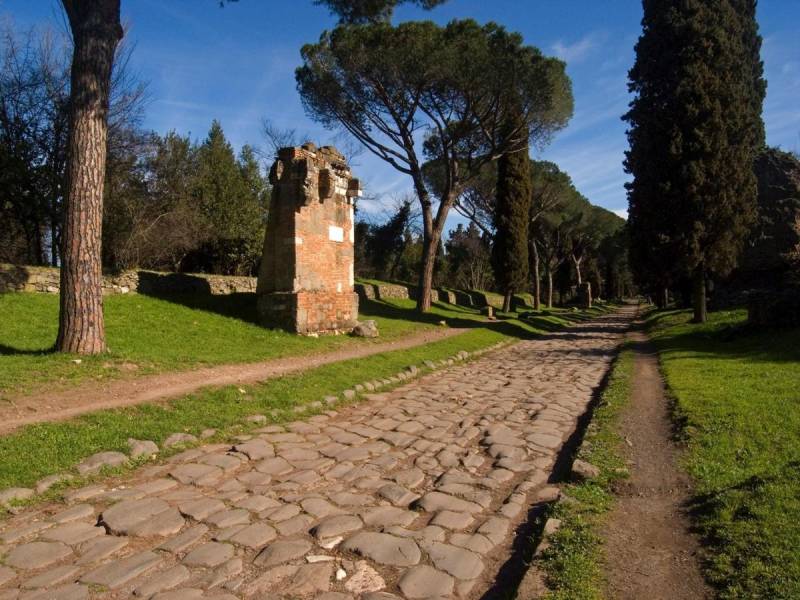
Information